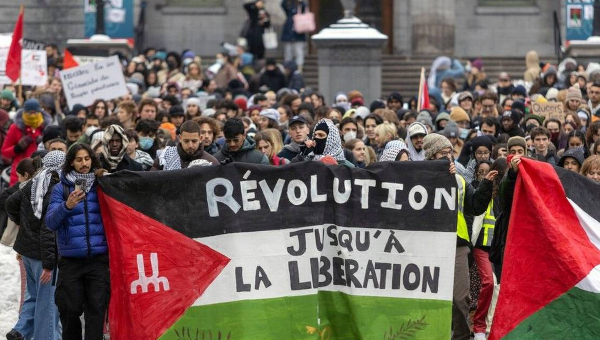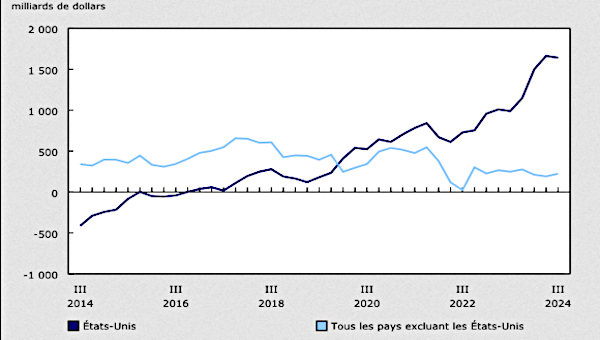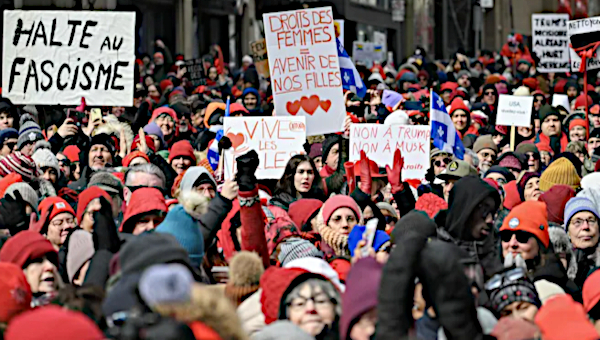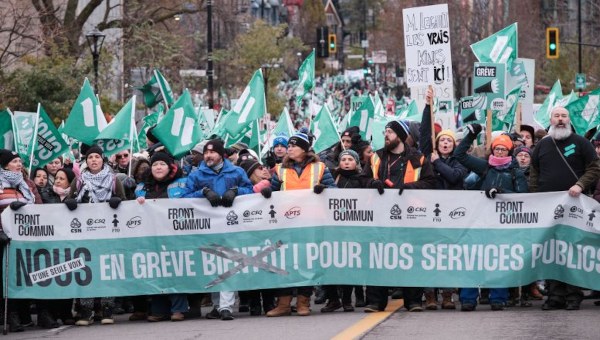Stamps Honour Three Quebec Feminists and Social Justice Activists
Canada Post honours three Quebec feminists and social justice activists: Léa Roback (1903-2000), Madeleine Parent (1918-2012), and Simonne Monet-Chartrand (1919-1993). These three Quebec women were lifelong advocates for social justice. … Watch video »
Canada Post honours three Quebec feminists and social justice activists: Léa Roback (1903-2000), Madeleine Parent (1918-2012), and Simonne Monet-Chartrand (1919-1993). These three Quebec women were lifelong advocates for social justice. They helped build many of today’s approaches to equality and justice in Canada.
“I would say that the word that best describes Léa is activist. Léa was a woman of action who committed to causes that were important to her in order to advance them. She got involved in the field through action with others. And she was also an optimist, that is to say that she could see the difficulties, the obstacles, but at the same time, she was firmly convinced that through solidarity, we can move forward.”
Léa Roback believed in organized labour as an important way to stop the exploitation of female workers. She also advocated for peace and women’s rights, including pay equity, the right to abortion and access to contraception.
“It was human beings, men and women who wanted better conditions, and we had an example of this in the United States. The women who worked in the sewing industry, they were the first women who organized (in unions).”
“Madeleine fought with the workers. She confronted the powerful, the bosses, and at that time, in the textile industry among others, they were ruthless companies, ruthless employers. With them, behind them, there was the underhandedness and complicity of the premier of the time, Maurice Duplessis, who was a sworn enemy of the unions. And there was also the complicity of a certain faction of the Catholic Church, which was also omnipresent and powerful in Quebec. Madeleine confronted all three.”
In 1947, Madeleine Parent was arrested for leading a strike that then premier Maurice Duplessis had declared illegal.
“When we fight against the bosses, they always have allies, whether they are allies in the government like Duplessis, whether they are allies in the union bureaucracy like in the American unions. So we have to fight the bosses.”
Later, Parent continued her fight for pay equity, and advocated for Indigenous women and their struggle to amend the Indian Act.
“To start with, I would say as she [Simonne Monet-Chartrand] used to tell people, she is a woman first. ‘It’s important to say you’re a woman. It’s different from a man.’ A woman, a feminist and an activist. An activist who has always worked for social justice.”
Simonne Monet-Chartrand is known for organizing a Peace Train in 1962. Hundreds of women arrived in Ottawa to present an anti-nuclear weapons brief to the federal government.
Simonne Monet-Chartrand: “I don’t know the feeling of fear, because my father, who was a good member of the National Assembly but who had to resign because he had too much political awareness of his own party, taught me never to be afraid, not of a bishop, not of a priest, not of a MNA, not of a president. Nor of a woman president.”
“I’m so glad that finally she [Léa Roback] is being honoured, because this is a woman who did not make the headlines in our history books. Because she was a humble woman, a worker who was a grassroots activist. So I am very happy that we have the opportunity to talk about her, to get people to know her, to reconnect with the values she defended, with the battles she led, so that it can inspire us for the future.”
“I would say that in the 20th century, she [Madeleine Parent] is probably one of the most important women in Canada and in Quebec. A woman who was involved in all the important social justice struggles that basically defined the rights of Indigenous people, the rights of people, workers of course, but also of immigrants and refugees. In short, she was a great, great activist, Madeleine Parent.”
“She [Simonne Monet-Chartrand] was Associate Director at La Ligue des droits de l’homme in Montréal. And she couldn’t understand why it was called that, “the league for men’s rights,” it’s not only men who have rights. So she had the name changed to La Ligue des droits et libertés (Rights and Freedoms League). Then she also wrote books on peace, and a book on Quebec women movements from 1970 to 1990. And also, the four volumes of her biography Ma vie comme rivière. So I think that’s her legacy. But she would tell you, if she were here, that the most beautiful thing she has done in her life is her seven children.”
We celebrate these three great pioneers for their profound influence on women’s and workers’ rights.
Léa Roback. Madeleine Parent. Simonne Monet-Chartrand.
For more discussions on Quebec politics see socialistproject.ca/tag/quebec.





